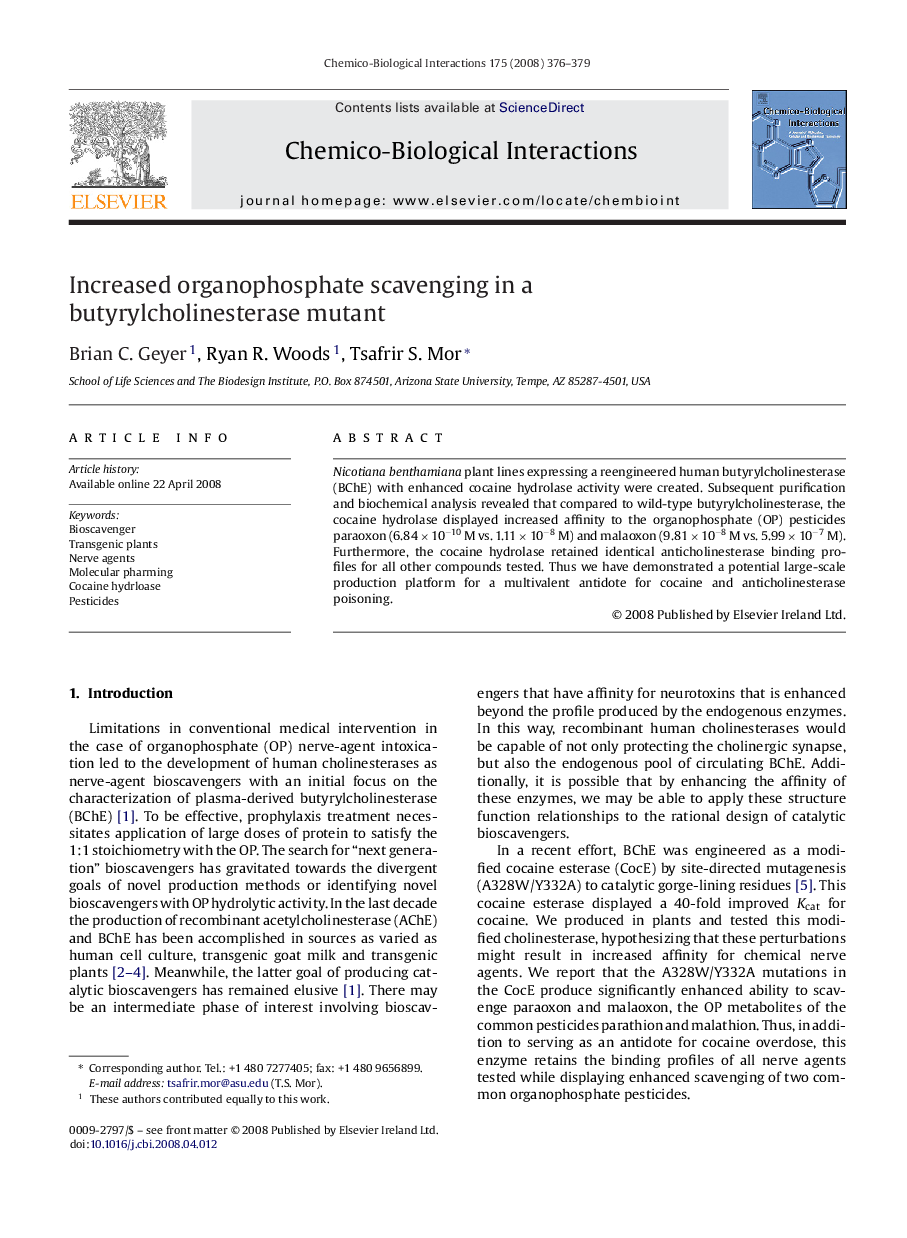| Article ID | Journal | Published Year | Pages | File Type |
|---|---|---|---|---|
| 2581619 | Chemico-Biological Interactions | 2008 | 4 Pages |
Abstract
Nicotiana benthamiana plant lines expressing a reengineered human butyrylcholinesterase (BChE) with enhanced cocaine hydrolase activity were created. Subsequent purification and biochemical analysis revealed that compared to wild-type butyrylcholinesterase, the cocaine hydrolase displayed increased affinity to the organophosphate (OP) pesticides paraoxon (6.84Â ÃÂ 10â10Â M vs. 1.11Â ÃÂ 10â8Â M) and malaoxon (9.81Â ÃÂ 10â8Â M vs. 5.99Â ÃÂ 10â7Â M). Furthermore, the cocaine hydrolase retained identical anticholinesterase binding profiles for all other compounds tested. Thus we have demonstrated a potential large-scale production platform for a multivalent antidote for cocaine and anticholinesterase poisoning.
Related Topics
Life Sciences
Environmental Science
Health, Toxicology and Mutagenesis
Authors
Brian C. Geyer, Ryan R. Woods, Tsafrir S. Mor,
